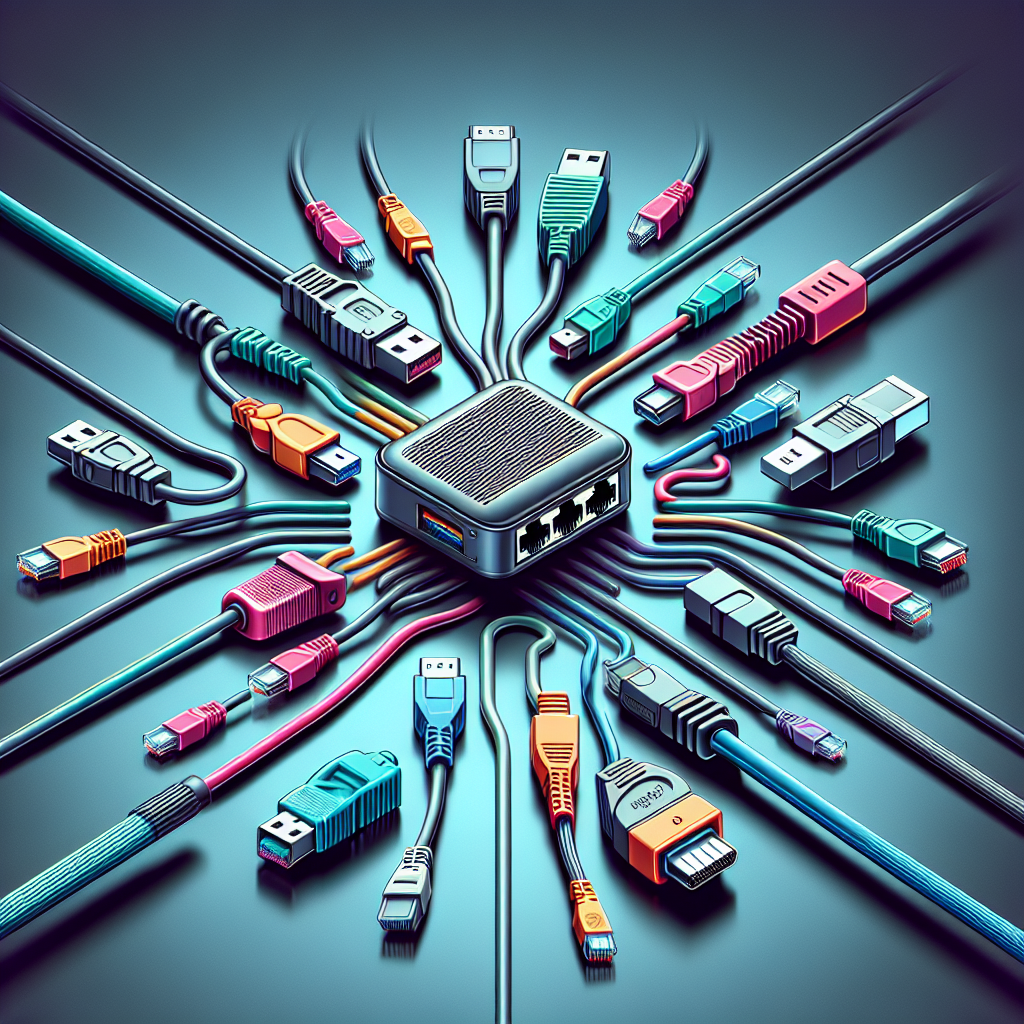The use of network adapters with various types of network cables can sometimes be a source of confusion for many users. Network adapters serve as the bridge between a computer and a network, but can they function seamlessly with different types of cables? This article dives into the compatibility and functionality of network adapters with different network cables, providing insights to help you make informed decisions.
Types of Network Cables
Network cables come in a variety of types and each has its own advantages and specific use-cases. The most familiar ones include Ethernet cables, fiber optic cables, and coaxial cables. Here’s a brief overview:
| Type | Description | Typical Use |
|---|---|---|
| Ethernet Cables (Cat5, Cat5e, Cat6, Cat6a, Cat7, Cat8) | These are the most commonly used network cables, particularly in home and business environments. They can handle speeds from 100 Mbps to 40 Gbps. | Home networks, business networks, internet connections |
| Fiber Optic Cables | These cables use light to transmit data and offer very high speeds and long-distance coverage. | High-speed internet, long-distance communication, ISP backbones |
| Coaxial Cables | Commonly used for cable television, they also support certain types of network connections. | Cable TV, older internet connections, certain broadband connections |
Understanding Network Adapters
Network adapters come in different forms such as PCIe cards, USB adapters, and built-in adapters on motherboards. These adapters are designed to work with specific types of network cables. Some modern network adapters are versatile and support multiple types of connections, but this isn’t universally true.
Compatibility with Different Network Cables
Let’s break down the compatibility aspects:
Ethernet Cables
Most network adapters, especially those built into modern laptops and desktop computers, are designed to work seamlessly with Ethernet cables. Whether it’s a Cat5 or a Cat8, the fundamental principle remains the same. However, the speed and performance will depend on both the cable category and the capability of your network adapter.
Fiber Optic Cables
Fiber optic cables are typically not compatible with standard network adapters that are designed for Ethernet cables. These require specialized fiber network adapters that can handle the light-based data transmission. Converters and transceivers may also be used to allow fiber cables to interface with Ethernet network cards, but this adds to the complexity and cost.
Coaxial Cables
Coaxial cables are generally not used with modern network adapters except in certain niche applications, such as older broadband internet services. Adapters for coaxial cables are different and not interchangeable with Ethernet or fiber optic adapters.
Considering Adapter Types
When considering the type of network adapter to use, it’s important to understand the specific requirements of your network environment:
- PCIe Cards: These are installed inside a desktop computer and are usually specific to certain types of network cables.
- USB Adapters: These offer more flexibility and can sometimes support multiple types of connections via additional ports or converters.
- Built-In Adapters: Found on most modern motherboards, these are typically designed for Ethernet cables and require additional hardware to support other cable types.
Connecting Different Cables
Each type of network cable requires specific connectors, and adapters can help bridge the gap when needed:
- RJ45 Connectors: These are commonly used with Ethernet cables. Network adapters typically come with RJ45 ports to facilitate this connection.
- SC and LC Connectors: Used with fiber optic cables, these require specialized adapters that can handle the fiber connections.
- F-Type Connectors: Commonly used with coaxial cables, these also need corresponding network adapters.
Final Considerations
When working with network adapters and different types of network cables, it’s crucial to ensure compatibility. While Ethernet cables and their related adapters are highly versatile, fiber optic and coaxial cables demand specialized equipment. Understanding the requirements of your network environment and investing in the proper adapters is key to achieving optimal performance and connectivity.
Overall, while some adapters are designed to handle multiple types of connections, the majority are tailored for specific cable types. Ensuring you have the right adapter for your network cable will enable seamless and efficient connectivity.

